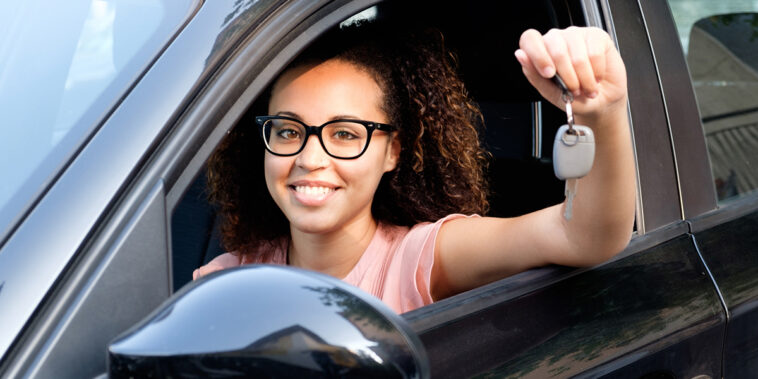Your guide to making sure your teenager is safe and covered when they hit the road.
Time flies when it comes to children. All of a sudden, it’s time for them to start driving! This information will prepare you on the business end but not so much for the worry that comes with their blooming independence.
Before a teenager is eligible for driving privileges, Florida Statue (F.S.) §322.0191 requires that they be enrolled in school and satisfy relevant attendance requirements, or have completed high school or an equivalency program. Some exemptions and hardship waivers are available.
Learner’s License
Teenagers can get a learner’s driver’s license at age 15. They must pass a written examination, a vision and hearing examination, and comply with “traffic law and substance abuse education courses” offered through public schools, the Florida Safety Council or online. Your learner must be accompanied at all times (in the front passenger seat) by a driver who holds a valid license and who is at least 21 years old. They can operate the vehicle during daylight hours for the first three months and until 10 p.m. until a driver’s license is issued.
After successfully driving with their learner’s license for over 12 months, they will be eligible for a driver’s license. Sixteen-year-olds with a valid driver’s license may drive themselves and others from 6 a.m. until 11 p.m. without supervision and 17-year-olds may drive unaccompanied before 1 a.m. and after 5 a.m. The exception is if the teenager is traveling directly to or from work. Violation of these restrictions could result in fines, suspension of driving privileges until age 21 or total revocation.
It’s important that you and your teenager are fully covered in the event of an accident. See the sidebar for insurance tips. If you have questions regarding insurance for your new driver or your new driver was involved in an accident, call or email us for a free consultation.
What You Should Know About Insurance for Teenagers
1. Most insurance companies won’t increase your rates while your teenager has a learner’s license. However, premiums will increase (some as much as 100%) with a driver’s license. Ask your insurance agent about additional coverage that may be necessary with the use of your cars.
2. Statistically speaking, your teenager will be involved in an accident within 12 to 24 months of receiving their driver’s license. Comprehensive or collision insurance will cover the repair or replacement of your vehicle even if your teenager was at fault.
3. F.S. §322.09 requires that a guardian acknowledge in writing that they assume responsibility for negligence or willful misconduct of the minor when driving a motor vehicle. This makes the guardian “jointly and severely liable” for any damages or injuries caused in an accident, meaning they can be sued. Liability insurance will help.
4. Several organizations provide safety awareness driver training for teenagers. Some are publicly funded and free. Others are private companies offering driving lessons in the classroom and behind the wheel. Most insurance companies offer discounts on premiums if your teenager successfully completes safety awareness training.
Mr. Brehne has dedicated his 20-year career to representing injured people in motorcycle and car accidents, and represents people when their insurance claims have been denied. He has earned a reputation as a tenacious and skilled trial lawyer when representing his clients against large corporate defendants and insurance companies. He is also the author of “Watching Out for Florida Motorcyclists: Legal Rights of Injured Bikers.”





Comments